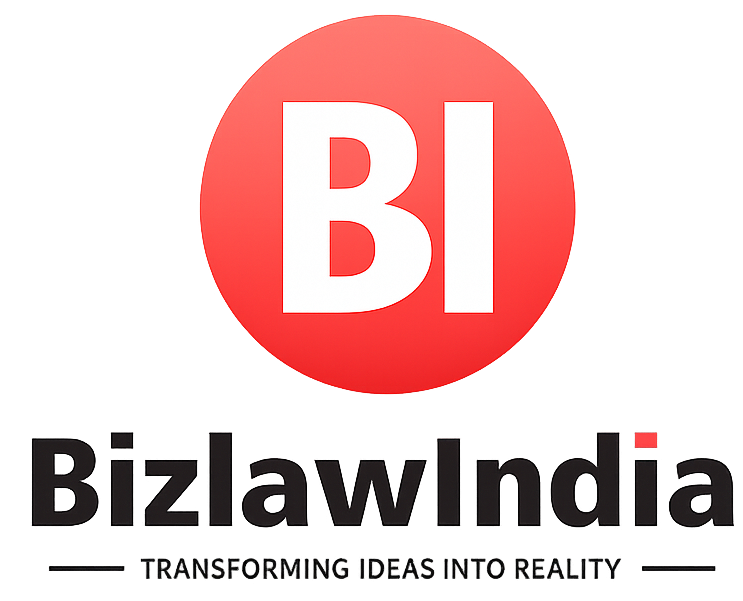Proprietorship Compliance
BizlawIndia is the largest legal services provider platform. we have almost 16000+ Incorporation in the last 7 years. You can get 100% satisfaction with our work
- End To End Assisted by our expert
- 100% Satisfactions Guarantee
- Guaranteed Registration with in 7 Working Days
Benefits: Business Registration and Licensing Tax Compliance Accounting and Financial Records GST Compliance

Overall We Completed
Choose us for Your Complete Business Setup We are Largest Legal Service Platform 1700+ Business Incorporated Since 2016
BizlawIndia is a one-stop solution for your all business needs, Consult Our team today.



Proprietorship Compliance
A sole proprietorship is one of the simplest and most common forms of business structures in India. It is owned and managed by a single individual, providing ease of formation and minimal regulatory compliance compared to other business entities. However, there are still several compliance requirements that sole proprietors must adhere to in order to ensure smooth and lawful business operations. This guide will provide a comprehensive overview of the key compliance requirements for proprietorships in India.

Understanding Sole Proprietorship
A sole proprietorship is an unincorporated business owned by one person. It is not legally separate from its owner, meaning the owner is personally liable for the business’s debts and obligations. Despite its simplicity, maintaining compliance is crucial for avoiding legal issues and ensuring business growth.
Key Compliance Requirements for Sole Proprietorships
- Business Registration:
- Although not mandatory, it is advisable to register the business name under the Shop and Establishment Act, which varies from state to state.
- Obtaining a Trade License from the local municipal corporation is also recommended to legally conduct business activities.
- PAN and TAN Registration:
- A Permanent Account Number (PAN) is essential for tax purposes.
- If the business involves deducting or collecting tax at source, obtaining a Tax Deduction and Collection Account Number (TAN) is necessary.
- GST Registration:
- If the business’s annual turnover exceeds the threshold limit specified under the Goods and Services Tax (GST) Act, registering for GST is mandatory.
- Even if the turnover is below the threshold, obtaining voluntary GST registration can provide certain benefits like input tax credit.
- Income Tax Compliance:
- Filing income tax returns annually is mandatory. The income from the business is considered the personal income of the proprietor and is taxed accordingly.
- Maintaining accurate records of income and expenses is crucial for proper tax filing.
- Accounting and Bookkeeping:
- Proper maintenance of books of accounts is essential. This includes records of all financial transactions, income, and expenses.
- It is advisable to follow accounting standards to ensure transparency and accuracy.
- Labour Law Compliance:
- Depending on the number of employees, compliance with labour laws such as the Employees’ Provident Fund (EPF) Act, the Employees’ State Insurance (ESI) Act, and the Payment of Gratuity Act may be required.
- Ensuring timely payment of salaries and adherence to employee rights is crucial.
- Professional Tax:
- In some states, proprietors are required to pay professional tax. The rates and regulations vary by state.
- Other Licenses and Permits:
- Depending on the nature of the business, additional licenses and permits may be required. For instance, a Food Safety and Standards Authority of India (FSSAI) license for food-related businesses.
Importance of Compliance
Maintaining compliance offers several benefits:
- Legal Security: Protects the business from legal disputes and penalties.
- Reputation: Builds credibility and trust with customers and stakeholders.
- Financial Health: Ensures proper financial management and helps in securing loans and investments.
- Sustainability: Facilitates sustainable business growth and operational efficiency.
Business Registration
- Trade License: Obtain a trade license from the local municipal authority or relevant local body, which authorizes you to conduct business in a specific area.
- Business Name Registration: Although not mandatory, registering a business name (also known as a trade name) helps in establishing brand identity and legitimacy.
Tax Compliance
- PAN (Permanent Account Number): Obtain a PAN from the Income Tax Department. It is necessary for tax reporting and opening a business bank account.
- GST Registration: If your annual turnover exceeds the prescribed threshold limit or if you are engaged in inter-state supply, you must obtain GST registration. Ensure regular filing of GST returns (GSTR-1, GSTR-3B).
- Income Tax Filing: File annual income tax returns (ITR) based on the income generated from the business. Proprietorships are required to file ITR-3 or ITR-4 depending on the nature of the business.
Financial Compliance
- Bookkeeping: Maintain accurate and up-to-date financial records of all transactions, including sales, purchases, expenses, and receipts.
- Annual Accounts: Prepare annual financial statements, including the Profit and Loss Account and Balance Sheet.
- Audits: If your turnover exceeds the audit threshold limit, you must have your accounts audited by a Chartered Accountant.
Employee Compliance
- Employee Provident Fund (EPF): If you have more than 20 employees, you must comply with EPF regulations, including contribution and filing requirements.
- Employee State Insurance (ESI): For establishments with 10 or more employees, ESI registration is required for providing health and medical benefits to employees.
- Labor Laws: Adhere to labor laws including wage payments, working hours, and employee rights.
Regulatory Compliance
- Environmental Clearances: If your business involves activities that impact the environment, obtain necessary environmental clearances and comply with pollution control regulations.
- Consumer Protection: Ensure compliance with consumer protection laws and regulations, including fair trade practices and accurate product/service information.
Other Compliance Requirements
- Data Protection: If handling sensitive personal data, comply with data protection regulations and implement necessary safeguards.
- Intellectual Property: Consider registering trademarks, copyrights, or patents to protect your business’s intellectual property.
Renewals and Updates
- Renewal of Licenses: Regularly renew business licenses and permits as required.
- Update Information: Update any changes in business information with relevant authorities, such as address changes or changes in the nature of the business.
Conclusion
Compliance is a critical aspect of managing a sole proprietorship in India. By adhering to the necessary legal requirements and maintaining proper records, sole proprietors can ensure the smooth and lawful operation of their business. For professional assistance and detailed guidance on sole proprietorship compliance, visit Bizlaw India.
How can Bizlaw India help you ?
- Registration Assistance: Help with obtaining trade licenses, GST registration, and PAN.
- Tax Compliance: Provide guidance on GST and income tax filing, and assist with documentation and filing.
- Bookkeeping and Accounts: Offer services for maintaining financial records and preparing annual accounts.
- Employee Compliance: Assist with EPF, ESI registration, and compliance with labor laws.
- Regulatory Guidance: Help with obtaining environmental clearances and ensuring adherence to consumer protection laws.
- Legal Support: Provide advice on data protection, intellectual property, and other regulatory requirements.
- Renewal and Updates: Assist with the renewal of licenses and updating business information.
Frequently Asked Questions
- Trade License: Obtain from the local municipal authority or relevant local body.
- Business Name Registration: Optional but helps in brand establishment.
- PAN (Permanent Account Number): Essential for tax reporting and opening a business bank account.
- GST Registration: Required if turnover exceeds the threshold limit or for inter-state supplies. Regular GST returns (GSTR-1, GSTR-3B) must be filed.
- Income Tax Filing: File annual income tax returns (ITR-3 or ITR-4) based on business income.
- Bookkeeping: Maintain accurate records of all transactions.
- Annual Accounts: Prepare financial statements including Profit and Loss Account and Balance Sheet.
- Audits: Accounts must be audited by a Chartered Accountant if turnover exceeds the audit threshold limit.
- Employee Provident Fund (EPF): Required if there are more than 20 employees.
- Employee State Insurance (ESI): Required for establishments with 10 or more employees.
Labor Laws: Adhere to wage payments, working hours, and employee rights
- Environmental Clearances: Obtain if your business impacts the environment.
- Consumer Protection: Follow laws regarding fair trade practices and accurate information.
- Data Protection: Comply with data protection regulations if handling sensitive personal data.
- Intellectual Property: Consider registering trademarks, copyrights, or patents.
- Registration Assistance: Help with trade licenses, GST registration, and PAN.
- Tax Compliance: Guide on GST and income tax filing, and assist with documentation.
- Bookkeeping and Accounts: Maintain records and prepare annual accounts.
- Employee Compliance: Assist with EPF, ESI registration, and labor law adherence.
- Regulatory Guidance: Help with environmental clearances and consumer protection compliance.
- Legal Support: Advise on data protection and intellectual property.
- Renewal and Updates: Assist with renewing licenses and updating business information.
Our Popular Services
Private Limited Registration | Public Limited Registration| Section 8 Micro Finance Registration | GST Registration | Compliances OPC Pvt Registration | LLP Registration | Partnership Registration | Proprietorship Registration | Society Registration | NGO Registration | 12A & 80 Registration| Register Office Change| Change Director | Start-up India Certificate | Digital Signature | Udhyam Aadhar| Import/Export Registration | FSSAI Code | PF Registration | ESI Registration | NGO Darpan certificate|
Top Searches
Multi state Credit Cooperative Registration | LLP Registration | Partnership Registration| Proprietorship Registration | Section 8 Registration | Society Registration| NGO Registration|12A & 80 Registration| NGO Darpan Registration| CSR-01 Form (For getting CSR funding). | | e-Anudaan (Grants-In-Aids To NGOS)| Add Director | Private To Public Limited| Register Office Change | private Limited Compliance | Nidhi Compliance | Micro Finance compliance | NBFC Compliance | GST Return Filings | GST Annual Return | GST Registration cancellation | Temporary GST Registration | ITR 1 Filings | ITR 2 Filings |Start-up India Certificate | Digital Signature | FSSAI Code | PF Registration | ESI Registration | NGO Darpan certificate | MSME Certificate | Trademark Registration | Copyright Registration | Trademark Renewal | Trademark class search | Response to TM objection | Credit Cooperetive | Micro Finance software | NBFC Software | Fintech software | Nidhi software | Website Design | E- Commerce website | Social business page Creat | pich deck | PPT | sms services | Google My business page setup |



